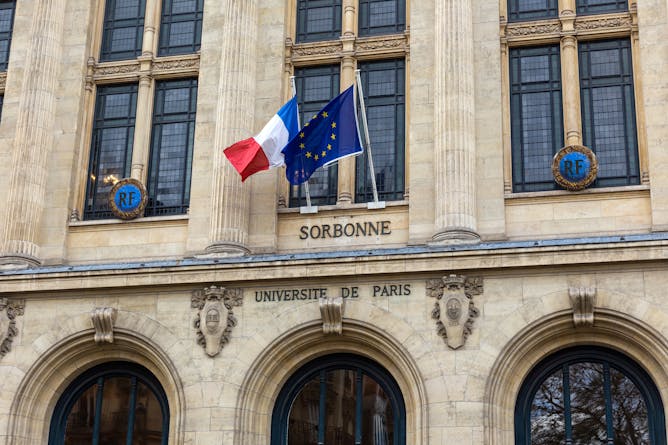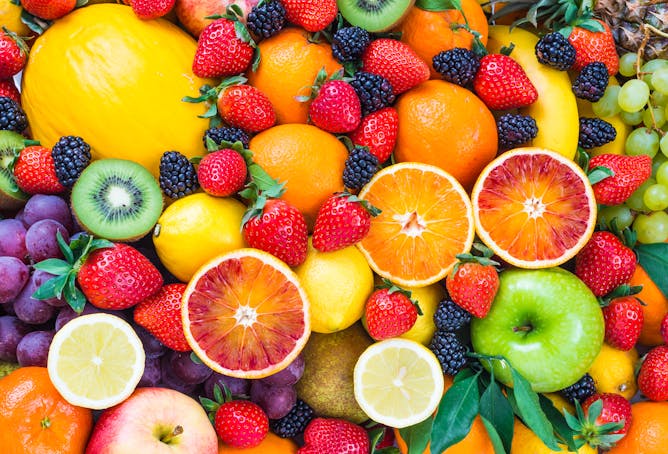|
|
|
|
The incredible pace of development of vaccines during the pandemic carries echoes of how the jet engine was born of wartime research. That invention went on to revolutionise travel, and the world, in the second half of the 20th century. Can we expect mRNA technology to have a transformative effect on post-pandemic societies?
How vaccines might be used going forward, and how they might develop, are among the questions put to Deborah Fuller, a professor of microbiology at the University of Washington, in the first edition of The Conversation Weekly of 2022. It a remarkable insight into the incredible potential that is being unleashed now. The podcast also looks at big developments in space exploration and robotics that can be expected this year.
The relationship between science, politicians and the public has been a key aspect of the pandemic. And it is the central theme of the film Don’t Look Up, an allegory for climate change. Here, academics consider the myths that fuel doubts about science and look at what can be done about them.
And as France takes on the rotating presidency of council of the European Union (with Emmanuel Macron’s first term in office coming to a close) our colleagues in Paris have published a series of articles this week looking at the country’s global role.
|

|
Stephen Khan
Executive Editor, The Conversation International
|
|

mRNA vaccines: not just for COVID.
Cryptographer/Shutterstock
Daniel Merino, The Conversation; Gemma Ware, The Conversation
Experts give us a science preview for 2022, plus what lies in store for global inequality. Listen to The Conversation Weekly podcast.
|

In ‘Don’t Look Up,’ Scientists played by Leonardo DiCaprio and Jennifer Lawrence watch with horror as people willfully ignore warnings of an impending disaster.
Entertainment Pictures / Alamy Stock Photo
Gale Sinatra, University of Southern California; Barbara K. Hofer, Middlebury
Just because something isn’t 100% certain doesn’t mean you ignore it, and other lessons from two researchers who study the problem of science denial.
|

‘Fight like hell’: Donald Trump speaks to his supporters on January 6, 2021.
EPA-EFE/Shawn Thew
Stephen Reicher, University of St Andrews; Alex Haslam, The University of Queensland; Evangelos Ntontis, The Open University; Klara Jurstakova, Canterbury Christ Church University
What happened on January 6, 2021 was a genuine co-production between Trump and his supporters.
|
|
|
-
Richard Calland, University of Cape Town
The inquiry’s findings could be a defining moment for South Africa, but only if the work of the Commission leads to concrete action and systemic change.
-
Matthew Hoffmann, University of Toronto
On the tail of yet another year of climate disasters, 2022 ushers in the final version of the Paris Agreement, making it a functioning global climate treaty. But it alone can’t save us.
-
Michele Acuto, The University of Melbourne; Dan Hill, UCL
Residents across the world have seen how the pandemic has ushered in changes – shall and big – to the way their cities look and function.
-
Louis-Philippe Coulombe, Université de Montréal
Clouds, hellish temperatures, endless nights? Characterizing the atmosphere of exoplanets, planets that orbit stars other than the sun, is a formidable task.
|
|
The Conversation in French and Spanish
|

L’université française est-elle en train de perdre sa place de destination phare des étudiants internationaux ?
Stas Knop/shutterstock
Alessia Lefébure, École des hautes études en santé publique (EHESP)
Malgré de nombreuses réformes, l’enseignement supérieur français poursuit sa descente dans les classements d’attractivité et d’accueil d’étudiants étrangers. Pourquoi ?
|

Shutterstock / leonori
Juan Carlos Laguna Egea, Universitat de Barcelona; Marta Alegret Jorda, Universitat de Barcelona
El consumo de fruta como tal en nuestra dieta es saludable. Procesada o disuelta en líquidos o en forma de zumo, menos.
|
| |
| |
| |
| |
|
|
|
|
|
|
|